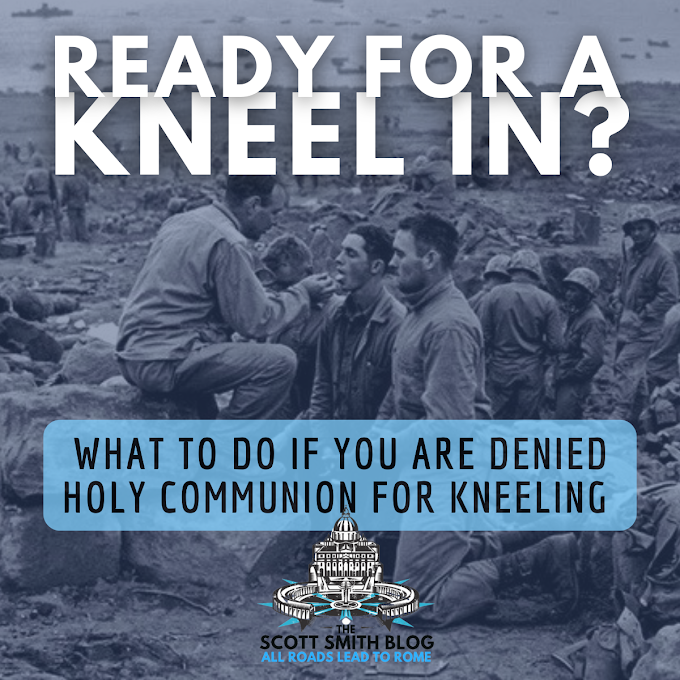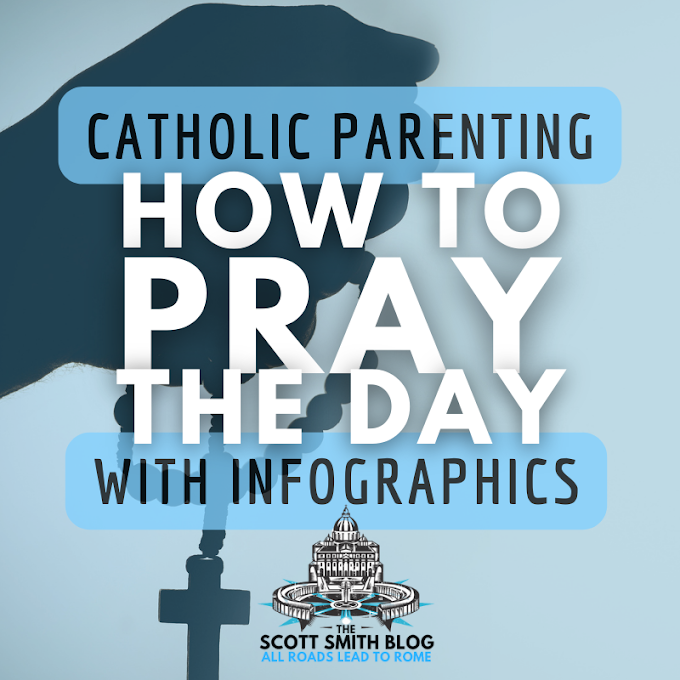What if I told you the Church Fathers, not the Founding Fathers, wrote the First Amendment? Stay tuned for a startling new discovery!
Pop Quiz! Think back to your high school U.S. Government course or Poli-Sci 101 in college. Where did all the great ideas in the U.S. Constitution come from? Where did the Founding Fathers get all those great ideas?
The Enlightenment, right? John Locke, Jean-Jacques Rousseau and the Social Contract. Baron de Montesquieu and The Spirit of the Laws. All the great minds. Right?
Nope.
Separation of Powers and the three branches of government? Sure, that can be traced to the Baron de Montesquieu.
The Freedom of Religion, however, is far more ancient.
This is the premise of a new book by Robert Louis Wilken, Liberty in the Things of God: The Christian Origins of Religious Freedom (see links below).
Robert Louis Wilken's Liberty in the Things of God
Wilken is a the William R. Kenan, Jr. Professor of the History of Christianity emeritus at the University of Virginia. Wilken's The Spirit of Early Christian Thought: Seeking the Face of God is required reading in many schools of Theology, including the one I attended.I highly recommend all of Wilken's books, but it is Wilken's most recent book Liberty in the Things of God that will be the subject of this article. In it, Wilken makes a startling discovery.
Christian Origins of Freedom of Religion
What ancient communities do you think might have something to say about freedom of religion? Those communities which faced terrible religious persecution.Crucifixion after crucifixion, the Christian community suffered religious persecution at the hands of the Romans. The Christians nonetheless endured and prospered.
Nearly all of Jesus' Apostles were martyred. St. Peter was crucified upside-down in Rome. St. Paul was eventually beheaded after a period of imprisonment in Rome.
There were also the virgin martyrs of Rome, including Saints Agnes, Agatha, and Lucy, who died in the persecutions led by Emperors Decius and Diocletian.
Saints Felicity and Perpetua, both mothers, were also martyred by the Roman Empire. They were not Italians, though. Felicity and Perpetua were from North Africa, specifically Carthage.
Tertullian and "Freedom of Religion"
Along with Saints Felicity and Perpetua, there was also a Church Father from Carthage. Tertullian.[1] Some scholars actually credit the writing or editing of the Passion of Saints Felicity and Perpetua to Tertullian. Tertullian is one of the primary reasons we even remember Saints Felicity and Perpetua into modern times.Tertullian coined a few very important words and phrases. For starters, Tertullian first coined the phrase "Old and New Testaments". Tertullian also first gave us the word "Trinity" (Latin trinitas) to describe the three Divine Persons. Read more about that here.
Put another way, the perfect self-governing community of Persons - the Holy Trinity - Tertullian named that!
But What Does Tertullian have to do with "Freedom of Religion"?
Here's another incredible connection. In addition to "Old and New Testaments" and "Trinity", Tertullian also was the first to coin the phrase "Freedom of Religion."Wow. Wouldn't it be incredible if somehow Tertullian's writings inspired the Founding Fathers?
Because that's exactly what happened.
Wilken's Discovery: The Connection between Thomas Jefferson and Tertullian
Anti-Catholic sentiment was very strong among many of the Founding Fathers. Many of our Founding Fathers were Deists, who basically believed in a "Watchmaker" God that never intervened in human history. How could Jesus' Incarnation into human history possibly fit into this worldview? Moreover, how could the Catholic Church, the institution which perpetuates Jesus' intervention into human history?This is one of Thomas Jefferson's more well-known quotes on religion:
Honest religion neither picks my pocket, nor breaks my leg.
This is taken from a longer passage in Jefferson's work, Notes on the State of Virginia:
The error seems not sufficiently eradicated, that the operations of the mind, as well as the acts of the body, are subjects to the coercion of the laws. But our rulers can have authority over such natural rights only as we have submitted to them. The rights of conscience we never submitted, we could not submit. We are answerable for them to our God. The legitimate powers of government extend to such acts only as are injurious to others. But it does me no injury for my neighbour to say there are twenty gods, or no god. It neither picks my pocket nor breaks my leg.
Wilken noticed that this quote as well as the context it fit into resembled the following quote from Tertullian.
You can see that the line in bold - "neither harms nor helps" - matches AT LEAST IN STRUCTURE the line, "neither picks my pocket nor breaks my leg":
It is only just and a privilege inherent in human nature that every person should be able to worship according to his own convictions. The religious practice of one person neither harms nor helps another. It is not part of religion to coerce religious practice. For it is by choice, not coercion, that we should be led to religion.
But how could Wilken prove this connection? It is not a direct quote, though there is a match in meaning and neither/nor structure.
What did Thomas Jefferson write in the Margins of His Personal Copy of Notes on the State of Virginia?
How could Wilken possibly prove this connection? Remember, I said Wilken is a professor emeritus at the University of Virginia (UVA).Guess who just happens to have Thomas Jefferson's personal copy of Notes on the State of Virginia? You guessed it. The UVA Rare Book Library.
Wilken turned to the page in Jefferson's personal copy on which the above quote - honest religion "neither picks my pocket nor breaks my leg" - is found.
Guess what Wilken found scribbled in the margins? Tertullian's quote!
Thomas Jefferson had scribbled Tertullian's quote in the margins in the original Latin.
But there's still more ...
Thomas Jefferson's Personal Copy of Tertullian
Wilken knew that Thomas Jefferson had written a bookseller in Richmond for some copies of Latin manuscripts. Wilken wondered if perhaps there might be a Tertullian manuscript among the collection of books that Jefferson had purchased from Richmond.It did. The Library of Congress allowed Wilken to look through Thomas Jefferson's personal copy of a 17th century Latin edition of Tertullian's writings.
Wilken turned to the page from which Thomas Jefferson had transcribed the above quote from Tertullian - the one which begins, "It is only just and a privilege inherent in human nature ..."
Jefferson had underlined the quote and put a big "X" in the margin beside it.
Isn't that amazing. Wilken was able to find a direct connection between Tertullian and Thomas Jefferson.
But there's still more!
Compare Tertullian's quote to the First Amendment
Here's my addition to all this. This might be something I notice being a lawyer.The connection from Tertullian to Thomas Jefferson does not end at Notes on the State of Virginia. Look at the First Amendment, itself! Look at the Freedom of Religion clauses of the First Amendment:
Congress shall make no law respecting an establishment of religion, or prohibiting the free exercise thereof ...
Look at the either/or structure and content of the Freedom of Religion section of the First Amendment:
- First there is the Free Exercise Clause: "Congress shall make no law respecting an establishment of religion"
- Next there is the Establishment Clause: "or prohibiting the free exercise thereof"
Now, look again at Tertullian's quote. Not the middle part about religion "neither harming nor helping". I have omitted that below. Look at the sentences which come before and after that:
It is only just and a privilege inherent in human nature that (1) every person should be able to worship according to his own convictions ... It is (2) not part of religion to coerce religious practice. For it is by choice, not coercion, that we should be led to religion.
Do you see it?
- Part One is about Free Exercise of religion, including worship and conscience protections.
- Part Two is about the coercive power of an Established Church.
Do you know what this means? Tertullian wrote the first draft of the First Amendment and Thomas Jefferson knew it. Tertullian's quote contains the archae-Free Exercise Clause and the archae-Establishment Clause.
Isn't that incredible?
There's still more!
This means that the Freedom of Religion, from Roman times to the writing of the U.S. Constitution, included conscience protections, not merely a freedom to worship.
Please share this incredible discovery with your friends and family. Feel "FREE" to comment below, as well, with any questions you might have.
Footnotes on Tertullian:
[1] In case you are wondering, that's not a typo. Tertullian is not Saint Tertullian because he fell into a couple heresies along the way, including Montanism. Tertullian is one of only Church Fathers not to be considered a saint. Describing Tertullian as a "Church Father" is also the minority position. For more on that, check out this video from Jimmy Akin and Catholic Answers.Appendix: St. John Paul II on Constitutional Rights, especially Right to Life
Excerpt from Homily given by St. John Paul II at the 8th World Youth Day in Denver, Colorado, on Solemnity of the Assumption, Sunday, August 15, 1993:Dear Friends, this gathering in Denver on the theme of Life should lead us to a deeper awareness of the internal con-tradiction present in a part of the culture of the modern “me-tropolis”.
When the Founding Fathers of this great nation enshrined certain inalienable rights in the Constitution – and something similar exists in many countries and in many International Declarations – they did so because they recognized the existence of a “law” – a series of rights and duties – engraved by the Creator on each person’s heart and conscience.
In much of contemporary thinking, any reference to a “law” guaranteed by the Creator is absent. There remains only each individual’s choice of this or that objective as convenient or useful in a given set of circumstances. No longer is anything considered intrinsically “good” and “universally binding”. Rights are affirmed but, because they are without any reference to an objective truth, they are deprived of any solid basis. Vast sectors of society are confused about what is right and what is wrong, and are at the mercy of those with the power to "create" opinion and impose it on others.
The family especially is under attack. And the sacred character of human life denied. Naturally, the weakest members of society are the most at risk: the unborn, children, the sick, the handicapped, the old, the poor and unemployed, the immigrant and refugee, the South of the world!
Young pilgrims, Christ needs you to enlighten the world and to show it the "path to life" (Ps 16,11). The challenge is to make the Church’s "yes" to Life concrete and effective. The struggle will be long, and it needs each one of you. Place your intelligence, your talents, your enthusiasm, your compassion and your fortitude at the service of life!
Have no fear. The outcome of the battle for Life is already decided, even though the struggle goes on against great odds and with much suffering. This certainty is what the Second Reading declares: " Christ is now raised from the dead, the first fruits of those who have fallen asleep. ...so in Christ all will come to life again" ( 1Cor 15,20-22). The paradox of the Christian message is this: Christ – the Head – has already conquered sin and death. Christ in his Body – the pilgrim People of God – continually suffers the onslaught of the Evil One and all the evil which sinful humanity is capable of.
6. At this stage of history, the liberating message of the Gospel of Life has been put into your hands. And the mission of proclaiming it to the ends of the earth is now passing to your generation. Like the great Apostle Paul, you too must feel the full urgency of the task: "Woe to me if I do not evangelize" (1Cor 9,16). Woe to you if you do not succeed in defending life. The Church needs your energies, your enthusiasm, your youthful ideals, in order to make the Gospel of Life penetrate the fabric of society, transforming people’s hearts and the structures of society in order to create a civilization of true justice and love. Now more than ever, in a world that is often without light and without the courage of noble ideals, people need the fresh, vital spirituality of the Gospel.
Do not be afraid to go out on the streets and into public places, like the first Apostles who preached Christ and the Good News of salvation in the squares of cities, towns and villages. This is no time to be ashamed of the Gospel (Cfr. Rom 1,16). It is the time to preach it from the rooftops (Cfr. Matth 10,27). Do not be afraid to break out of comfortable and routine modes of living, in order to take up the challenge of making Christ known in the modern "metropolis". It is you who must "go out into the byroads" ( Matth 22,9) and invite everyone you meet to the banquet which God has prepared for his people. The Gospel must not be kept hidden because of fear or indifference. It was never meant to be hidden away in private. It has to be put on a stand so that people may see its light and give praise to our heavenly Father.
Jesus went in search of the men and women of his time. He engaged them in an open and truthful dialogue, whatever their condition. As the Good Samaritan of the human family, he came close to people to heal them of their sins and of the wounds which life inflicts, and to bring them back to the Fa-ther’s house. Young people of "World Youth Day", the Church asks you to go, in the power of the Holy Spirit, to those who are near and those who are far away. Share with them the freedom you have found in Christ. People thirst for genuine inner freedom. They yearn for the Life which Christ came to give in abundance. The world at the approach of a new millennium, for which the whole Church is preparing, is like a field ready for the harvest. Christ needs laborers ready to work in his vineyard. May you, the Catholic young people of the world, not fail him. In your hands, carry the Cross of Christ. On your lips, the words of Life. In your hearts, the saving grace of the Lord.

















2 Comments